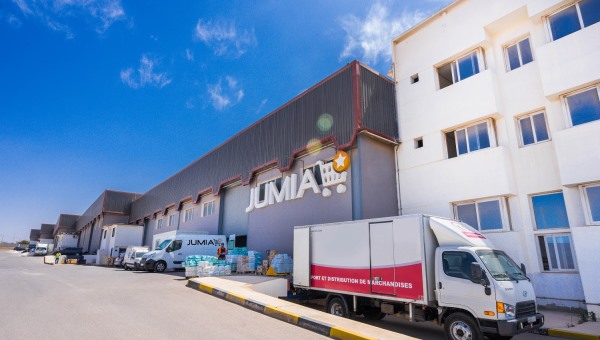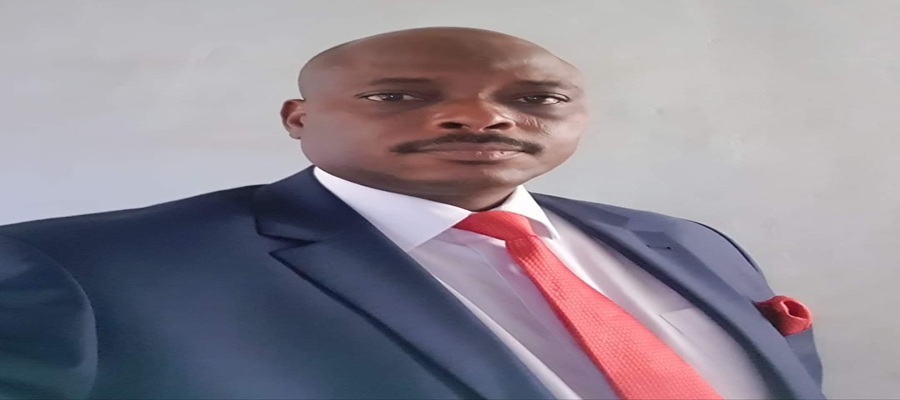News
How Ecommerce Logistics Networks are growing Brands Businesses in Nigeria

By Adedoyin Giwa
The logistics and supply chain sector is one of the fastest growing industries in Nigeria. According to a report by Logistics and Supply Chain Industry published in 2018, the sector is recording a year on year growth.

The report showed the Nigerian logistics sector was valued at N250 billion, which represents a rise of N50 billion from 2017.
Infrastructure investment is key to the growth of the logistics industry, but there’s an obvious regional and national deficit in Nigeria’s Logistics infrastructure which hinders trade for micro and small businesses. This is despite the operation of local and foreign private companies like UPS, Fedex, DHL, Red Star, and the Nigerian Postal Service in the industry.
In recent times, the industry has witnessed new industry players especially ecommerce companies with technology wherewithal, and whose services are filling the market deficit and having a huge impact on SMEs. The likes of Jumia, Konga, Gokada, Opay have redefined the Nigerian logistics space to fit the demands of the digital community.
In 2020, the leading ecommerce player, Jumia opened up its logistics network and technology infrastructure to third party businesses to service the facility deficit in the sector and the move is being embraced by SMEs and even large scale businesses.
According to the Company’s 2020 Q4 report, the pilot conducted in 2020 saw Jumia ship almost half a million packages on behalf of more than 270 clients including large corporates such as banks, FMCG companies, mobile network operators as well as SMEs from a broad range of industries.
Speaking on the impact of logistics services on seller customer relationships in today’s business world, Gloria Igoche, Head Supply Chain, Zaron Cosmetics said getting goods across to customers has become easier and ending in a win-win situation.
“There’s hardly a place that Jumia doesn’t go to. So our customers either in the rural or urban areas can get our products at low cost and very fast. So it has been more businesses for us; we are happy and our customers are happy,” she said.
On how affordable logistics services are improving customers’ experience in Nigeria, Omolara Adagunodo Head of Advertising, Jumia Nigeria said Jumia is extending its services to further help SMEs penetrate rural customers with ease and affordability.
She said: “Jumia Logistics offers logistics services within Lagos and delivers to all 36 states of Nigeria at the lowest cost. We offer end to end logistics services including warehousing, and last mile services. With us you also enjoy the privilege of pay on delivery and a tracking system from start to finish.”
According to the company, individuals and enterprises can engage the Jumia logistics service by visiting the nearest Jumia drop off station, register pay and drop off the package. From then on, Jumia takes over the process with delivery confirmation sent to the sender.
The company said it also offers special service delivery for their party individuals or businesses that ship at least 30m packages per week.
It is expected that with more infrastructural investment by private companies, coupled with the much needed government support, Nigeria’s logistics and supply chain will be able to optimise the huge rural and urban markets available in Nigeria to attain its enormous economic potential.
News
REA, NBS Partner to Deliver Comprehensive Energy Data for Nigeria

The Rural Electrification Agency (REA) and the National Bureau of Statistics (NBS) have signed a Memorandum of Understanding (MoU) to conduct a nationwide energy survey aimed at closing long-standing data gaps in Nigeria’s power sector. The initiative is expected to guide policy, attract investment, and accelerate universal electricity access.

Signed in Abuja, the agreement establishes a National Energy Survey based on the Multi-Tier Tracking Framework (MTF), a globally recognized methodology that measures electricity access not only by grid connection but also by quality, affordability, reliability, and usage of electricity and clean cooking solutions.
The survey will be implemented under the Energy Sector Management Assistance Program (ESMAP) of the World Bank. Dr. Abba Aliyu, REA Managing Director/CEO, said the partnership underscores REA’s commitment to evidence-based rural electrification planning and will generate detailed insights on electricity access and off-grid solutions nationwide.
Prince Adeyemi Adeniran, Statistician-General of the Federation/CEO of NBS, emphasized that reliable statistics are essential for effective policymaking, assuring that NBS will provide technical oversight, sampling expertise, and quality assurance to meet global standards.
The survey will assess energy access, household affordability, expenditure patterns, and the adoption of off-grid technologies such as solar home systems, mini-grids, and clean cooking solutions. REA will provide sector expertise and policy alignment, while NBS manages regulatory approvals, methodology, and technical supervision.
Funded and technically overseen by the World Bank, the exercise will run for 18 months, with the resulting data expected to improve national energy planning, programme targeting, and private sector investment, particularly in underserved and rural communities.
Officials said the collaboration reflects the Federal Government’s commitment to strengthening inter-agency coordination, enhancing energy data availability, and advancing Nigeria’s goal of universal electricity and clean cooking access.
News
SiBAN New Executive Council to Champion Vision for Nigeria’s Digital Economy

The Stakeholders in Blockchain Technology Association of Nigeria (SiBAN), the nation’s foremost self-regulatory body for the blockchain industry, has completed its election cycle, heralding the beginning of a new executive council dedicated to scaling Nigeria’s digital economy.

The highly anticipated elections concluded recently with the emergence of a new leadership team poised to champion industry standards, foster innovation, and drive widespread adoption of blockchain technology across the country.
The newly elected executives, who will officially assume their roles in January 2026, represent a blend of legal, financial, and technical expertise critical for navigating the evolving regulatory landscape.
Leading the charge is Mela Claude-Ake, a lawyer, who has been elected the President of SiBAN to succeed the outgoing President, Obinna Iwuno, whose tenure was marked by significant achievements, including facilitating crucial reforms and forging strategic partnerships with regulators and other critical stakeholders in the digital asset industry. Mr. Iwuno will formally hand over the reins to the new council in January 2026.
Other elected to the executive council are Chimene Chinah – Vice President 1, in charge of Blockchain education and adoption; Oroke Cornelius – Vice President 2, in charge of membership, strategic partnerships, and funding; and Ayo Shonibare – Vice President 3, in charge of policy, regulation, and ethics.
Others are Ugochukwu Peters – Vice President 4 in charge of digital asset operations and capital markets, Mbene Vivian – Chief strategy officer in charge of projects and incubation, Olufunmilayo Tugbobo as Financial Secretary/Chief Financial Officer, and Chiemeka David Ohajionu as Chief Communications Officer.
The newly elected council’s structure reflects SiBAN’s commitment to addressing key pillars of the blockchain ecosystem: from grassroots education and fostering innovation through projects, to establishing robust regulatory frameworks.
In his acceptance speech, Mela Claude-Ake emphasized the vital role SiBAN plays in shaping the future of finance and technology in Nigeria.
“The trust placed in this new council is not one we take lightly. We inherit a great foundation built by the outgoing team. Our mission now is to accelerate. We stand at a critical juncture where the potential of blockchain to revolutionize every sector, from finance and governance to supply chain, is undeniable. This new council will focus relentlessly on advancing smart, collaborative regulation, democratizing blockchain education, and protecting the interests of all stakeholders to ensure that Nigeria remains a leader in the African digital economy space,” he assured.
He added that he is humbled by the opportunity to be the face of one of Nigeria’s youngest and most promising sectors — blockchain tech.
“As a tech enthusiast I am excited at the possibilities. The ecosystem needs careful nurturing by the government. My administration will be focused on building new bridges for the blockchain sector internationally and domestically, establishing trust with the public and unifying the sector. I enjoin all blockchain stakeholders in Nigeria, connected to Nigeria or of nigerian heritage to join hands together with my administration in building the industry of our dreams.”
The industry now looks forward to the handover ceremony in January 2026 and the initiatives the new SiBAN leadership will unveil to solidify the association’s role as a catalyst for innovation and a respected partner to the Nigerian government.
News
APC National Chairman Appoints Mr. Abimbola Tooki as Special Adviser on Media

The National Chairman of the All Progressives Congress (APC) has approved the appointment of Mr. Abimbola Tooki as Special Adviser on Media and Communication Strategy.

Mr. Abimbola Tooki
The appointment reflects the Chairman’s confidence in Mr. Tooki’s vast experience, professional pedigree, and proven capacity to deploy strategic communication in strengthening party cohesion, public engagement, and effective message delivery at both national and international levels.
Mr. Tooki is a celebrated journalist, columnist, and media strategist with deep expertise in governance reporting, crisis communication, information management, and team leadership.
He is widely regarded for his ability to bring institutions closer to the people through the effective use of conventional and digital media platforms.
His career demonstrates a consistent track record of innovation, results-oriented leadership, and excellence in managing internal and external communications.
A versatile Information and Communications Technology (ICT) editor for many years, Mr. Tooki managed and developed influential ICT and business sections in leading newspapers, contributing significantly to public understanding of technology and economic issues.
He also pioneered major newsroom initiatives, including the establishment of specialised ICT publications, and is respected for his sharp analytical skills and solution-driven approach in fast-paced environments.
His professional journey spans several reputable media organisations, culminating in his role as Editor of BusinessWorld Newspaper, where he oversees editorial direction, production, administration, and corporate management.
He previously rose through the ranks at Financial Standard, earning rapid promotions due to exceptional performance, intellectual depth, and dedication to duty.
Mr. Tooki is also a familiar face and respected voice in broadcast media, serving over the years as a guest analyst on platforms such as Channels Television and other national stations, where he analyses major headlines, public policy, and issues of national importance.
Academically, he holds an MBA from Obafemi Awolowo University, a Postgraduate Diploma in Journalism from the Nigerian Institute of Journalism, and a Bachelor’s degree in Language Arts from the University of Ilorin.
In his new role, Mr. Tooki is expected to provide strategic direction for the Chairman’s media engagement, strengthen the APC’s communication architecture, manage reputation and messaging, and enhance the party’s interface with stakeholders, the press, and the Nigerian public.
The APC congratulates Mr. Abimbola Tooki on his appointment and wishes him success as he brings his wealth of experience, energy, and professionalism to bear in support of the Chairman and the party at large

 E-Financial2 days ago
E-Financial2 days agoSupreme Court Clears Fidelity Bank in ₦225bn Sagecom Saga

 E-Financial2 days ago
E-Financial2 days agoPreventing Financial Crimes Amid Mounting Insecurity: Why Following the Money is Now a Survival Imperative

 E-Financial2 days ago
E-Financial2 days agoUnion Bank Clinches Top Workplace Practice Honour at Sustainability Awards

 Broadcasting2 days ago
Broadcasting2 days agoDavido, Babajide Sanwo-Olu, Karl Toriola, Others To Be Honoured At The Most Influential People of African Descent Awards In Lagos

 News1 day ago
News1 day agoSiBAN New Executive Council to Champion Vision for Nigeria’s Digital Economy

 Telecom2 days ago
Telecom2 days agoNITDA Charts Path for Kano as Innovation Hub

 Telecom1 day ago
Telecom1 day agoNCC Blames NOGASA for Abuja Outage

 E-Financial1 day ago
E-Financial1 day agoTax Reform or Financial Exclusion? The Trouble with Mandatory TINs



























